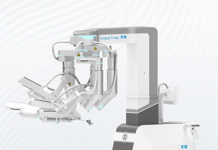UK-based Cyted Health has raised $44m to accelerate the ongoing market adoption of its EndoSign device in the US.
The gastrointestinal (GI) diagnostic company’s EndoSign is a swallowable ‘capsule sponge’. Positioned as a less invasive alternative to GI endoscopy, the device dissolves in a patient’s stomach to collect oesophageal samples to detect conditions such as Barrett’s oesophagus. The device, which uses proprietary biomarkers, gained US Food and Drug Administration (FDA) clearance in January 2024.
Related: Vaxxas raises $58.4M for needle-free vaccine delivery tech
Cyted’s CEO Marcel Gehrung said the investment will help consolidate its position in the US market by expanding its presence and adding further innovations to its diagnostics portfolio.
Cyted has completed around 35,000 tests to date with EndoSign on the UK’s National Health Service (NHS). The extensive testing in cooperation with English cancer alliances has resulted in a range of publications demonstrating the feasibility of implementing capsule sponge testing in primary care pathways to target patients with possible Barrett’s oesophagus or oesophageal adenocarcinoma (OAC) who may otherwise lack diagnostic options.
Barrett’s oesophagus is a pre-cancerous condition wherein cells lining the lower oesophagus become inflamed due to chronic acid reflux. While it increases the risk of developing oesophageal cancer, not all patients with the condition go on to develop the disease.
EQT Life Sciences led Cyted’s latest funding round, which brings its total funding to date to around $57m, with Advent Life Sciences and British Business Bank serving as co-leaders. Existing investors Morningside and BGF also participated.
The funding follows the launch of Cyted’s DETECT-ME study [NCT06803927] in the US in March to validate the clinical performance of its newest assays and molecular tests for detecting oesophageal conditions.
Cyted was founded in 2018 by a team at the University of Cambridge. UK government science minister Lord Vallance said the company’s growth demonstrates the ability of British universities to turn “world-class life sciences research into successful commercial opportunities”.
“Life sciences form a critical part of this government’s ambitions for both the economy and healthcare – and through our Life Sciences Sector Plan, we will continue to support the industry to even greater success,” Vallance said.
The UK’s Labour government outlined its Life Sciences Sector Plan in July. Stated aims of the initiative to “supercharge” the sector’s growth and development include supporting the Medicines and Healthcare products Regulatory Agency (MHRA) to become a “faster, more agile regulator” and slashing clinical trial setup times to under 150 days.






